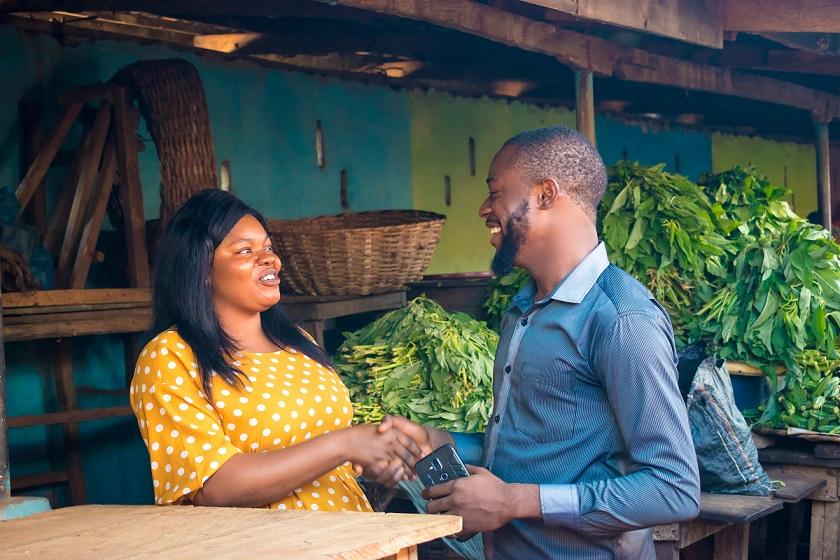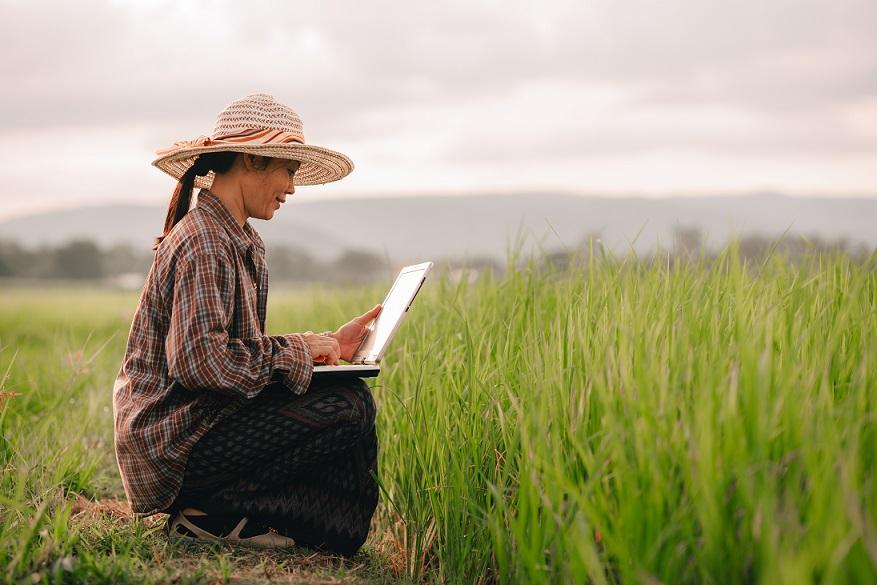Companies and organizations are seeking out ways to increase their environmental and social impact using data and technology.
Data and analytics are being utilized in more holistic and interlinked ways to solve pressing development challenges.
Business owners can use data to ensure value chain traceability, thereby building trust with producer communities and buyers alike.
Data can be used for impact monitoring and to enable financial inclusion for groups such as smallholder farmers.
Data can also be used to incentivize and support sustainable practices, for example, by helping farmers claim carbon credits.
Entrepreneurs also empower communities by enabling them to access and control their own data.
However, it is critical to consider which kind of technology and what level of data collection is most beneficial to communities, particularly among low-income and underserved groups. Additionally, to become more efficient, data systems must increase their interoperability.

Data helps solve global challenges.
Companies and organizations are seeking out ways to increase their environmental and social impact using data and technology. Data specialists at analytics company SAS, for example, established Data for Good in order to partner with organizations on projects using data to address the UN Global Goals. They are increasingly seeing data being used in more holistic and interlinked ways. “A trend we are seeing, as organizations become more data literate, is that they are asking more advanced questions about impact that link topics that have not traditionally been linked before. One example is looking at how the pandemic not only impacted a country’s health system, but also a combination of their social, financial, and educational systems,” says I-Sah Hsieh, SAS Chief Innovation Officer.

Reliable data can create trust among consumers and producers.
Consumers are asking questions about where their products originate, and investors are also seeking out value chain data. Entrepreneurs can use data to ensure traceability, thereby building trust with producer communities and buyers alike. Katherine Milling, founder of Nature’s Nectar, explains why traceability is so important to her honey production business in Zambia: “With the consumer market now really trying to understand exactly where their food is coming from, it’s important that we can prove as a supplier where the honey is produced and how.” She adds: “This use of this data enables us to show that not only are farmers getting a higher price for honey produced, but it creates strong and trusting partnerships between us.”

Data can enable climate adaptation.
Data can be used for incentivizing sustainable practices and to enable financial inclusion for groups such as smallholder farmers. For example, AgriG8 was founded with the objective of improving access to affordable finance for farmers by convincing lenders to invest in sustainable agriculture. “The hypothesis: Farmers practicing a sustainable methodology are more resilient and therefore, more virtuous borrowers,” founder David Chen writes in his blog featured in this issue of CLUED-iN.
AgriG8 is not the only company using data to incentivize sustainable practices. In Uganda, an organization encouraging farmers to maintain trees is using data to support moves toward sustainability. Using the mobile app and web platform Smallholdr enables farmer organizations to claim carbon credits, which can be converted into money.

Data can be used for incentivizing sustainable agricultural practices.
Entrepreneurs can also empower communities by enabling them to access and control their own data. Omolola Salako created the Oncopadi app to allow cancer patients to access health data and reach a wider network of oncologists in Nigeria. Patients are able to view their own health data, which can allow them to see if they are a match for trials, for example. “Access to health data empowers patients to be the mediator of their cancer care coordination,” says Dr. Salako.
Filipe di Matteo and Harrison Kaziro of the Agribusiness Market Ecosystem Alliance (AMEA) argue that it is important for smallholder farmers to access their own data: “Data ownership is also critical to enable farmers and agri-SMEs to develop greater empowerment and agency in the value chains they operate. Increasingly, agri-SMEs would appreciate the value of this data in enabling access to finance, developing new business opportunities, and meeting legal obligations,” they tell CLUED-iN.
However, it is critical to consider which kind of technology and what level of data collection is most beneficial to communities, particularly among low-income and underserved groups. Additionally, to become more efficient, data systems must increase their interoperability. Moses Kimani, Founder and CEO of Lentera, which provides real-time agricultural data, notes that currently, “every innovator has their own platform.” He says, “I foresee a massive consolidation and standardization of agri-data systems. The current crises will spur active merger and acquisition activities in this space. This interoperability will likely be the future of data systems for agriculture.”
With a balanced and inclusive approach, entrepreneurs are harnessing data and technology to open doors to new approaches to sustainable development, benefiting communities in meaningful ways around the globe.

Data ownership can empower communities
- World Bank, Data for Better Lives
- Global Partnership for Sustainable Development Data
- Center for Financial Inclusion
- Sight and Life, Consumer Insights
- Global Distributors Collective and Energy catalyst, Digital transformation to support last mile distribution: overcoming barriers together
Photo credits
- Human and technology: Copyright Shutterstock/metamorworks
- Banana vendor: Pixabay
- Survey: Wan Kurniawan on Unsplash
- Satellite view of Colorado fires: NASA Goddard Photo and Video (CC BY 2.0)
- Vendor and businessman: Copyright Shutterstock/i_am_zews
- Rice farmers: Copyright AgriG8
- Asian farmer: Copyright Shutterstock/Torychemistry
- Nigerian mother using smartphone: KC Nwakalor for USAID / Digital Development Communications (CC BY 2.0)



